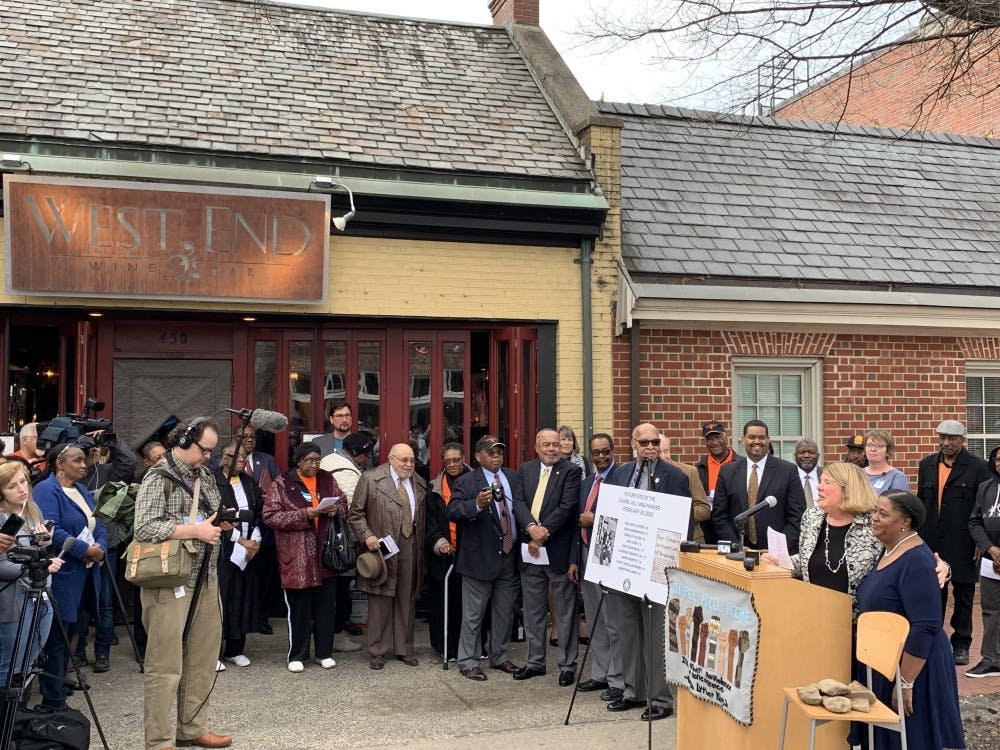On Feb. 28, 1960, nine students from the all-Black Lincoln High School held a sit-in at the Colonial Drug Store, which was only open to white customers — an action that would facilitate future civil rights activism in Chapel Hill.
On Thursday, 405 W. Franklin St., the former location of the drug store, was dedicated to honor the students' courage, followed by a community celebration at First Baptist Church put on by the Lincoln High School Alumni Association. Next year, on the 60th anniversary of the sit-ins, a permanent marker will be placed at the site.
“The significance of this marker is this is meant to recognize a more complete history of Chapel Hill and really of the South,” said Chapel Hill Town Council member Allen Buansi. “... I think what folks can learn from it is that you’re never too young to make a difference.”
The idea to delve deeper into celebrating and commemorating the Town’s civil rights history started when Danita Mason-Hogans, a daughter of one of the Chapel Hill Nine, met with Chapel Hill Mayor Pam Hemminger. Hemminger created the Historic Civil Rights Commemorations Task Force in 2017 to invite members of the community to share their stories and memories.
Mason-Hogans said prior to this, there was nothing in Chapel Hill that commemorated the youth movement of the 1960s, and the Town recognized the need for one.
“The objective of that task force was to create a timeline that identified people, places and events significant to the civil rights movement in Chapel Hill,” Buansi said.
The council accepted the proposal for the marker, and the Opening Our Future timeline was introduced to the public in November 2018. The timeline allows Chapel Hill community history projects where residents can share their stories or memories of the time period.
They have also made civil rights trading cards with facts about the local movement, available to all K-12 Chapel Hill and Carrboro schools for classroom use.
Buansi said there will be a commemoration service for Harold Foster, the organizer of the Chapel Hill Nine, this spring.




